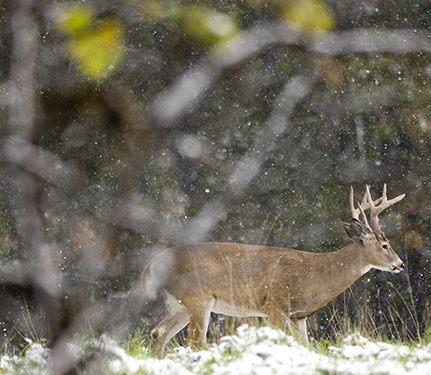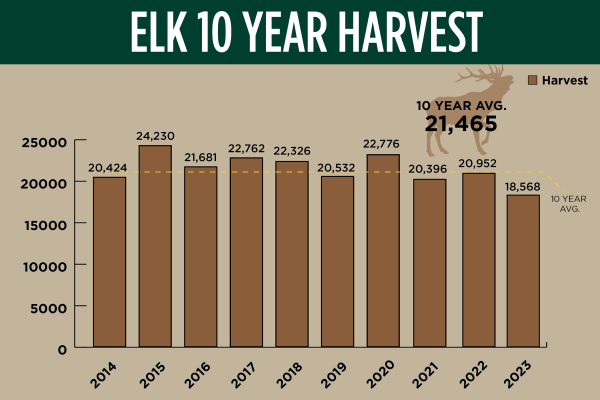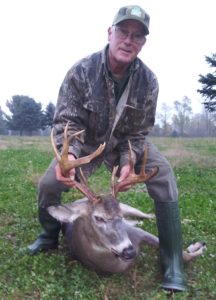Better Than "Earn-a-Buck"
By Glen Wunderlich
Outdoor Columnist
Member Professional Outdoor Media Association
When the conversation turns to controlling Michigan’s deer numbers in high density areas, some well-intentioned hunters point to the “Earn-A-Buck” system in Wisconsin. It is a simple concept: deer hunters must harvest an antlerless deer before being qualified to take a buck. Sounds great in theory but Wisconsin hunters bellyached so much about it that the program was abolished this season. However, that hasn’t prevented our Natural Resources Commission (NRC) from the notion of reinventing this wheel in our state.
It’s understandable in that we have made no measurable progress to control the burgeoning herd. The NRC cited the following examples of reasons for this season’s decline in harvest totals of 20 to 30 percent in the Upper Peninsula (UP), Northern Lower Peninsula (NLP) 15 to 25 percent and the Southern Lower Peninsula (SLP) 5 to 10 percent:
Last winter’s severity made for substantial losses of deer in the UP and NLP.
Deer didn’t move because of the warm weather.
Rutting activity took place at night.
By November 15th only 20 percent of standing corn was harvested, whereas 80 percent is typically the case.
Excess female deer in the SLP so buck didn’t have to engage in a heavy chase.
Some hunters couldn’t adjust to hunting without bait.
Non residents of the UP and NLP hunted only a day or so, then went home.
At its December 3rd meeting the NRC concluded that the ONLY effective way to obtain antlerless harvest goals is to implement the Earn-A-Buck program. Sure. Just like the Obama administration’s only road to nation-wide prosperity is to plunge this country deeper into debt while growing government. Right!
The rub in Wisconsin? Simple. Hunters don’t like the idea of passing up trophy bucks. In haste, some may shoot the first bald deer they see to qualify for the privilege of hunting a buck, and in so doing are apt to eliminate future wallhangers by killing button buck fawns. In the end, it’s quite possible to actually achieve total herd goals, but the mandate to get an antlerless deer out of the way first will work against herd balance rationale by killing off buck fawns. The question remains whether the Earn-A-Buck strategy is the only solution to herd management.
Who among the decision makers in the NRC would argue that reducing the cost of an antlerless tag to $1 from the current $15 would result in an increased harvest of does? No Earn-A-Buck and no need kill in haste. Just make it easier in these tough times for herd management volunteers to help achieve sound management goals. Obviously, at $1 per antlerless tag, revenue would drop substantially, even though volume of sales would increase. So, let’s deal with that.
For the sake of argument, let’s say revenue to the state would drop $1 million. Before the program is implemented, insurance regulators could compute a baseline of the average annual cost of car/vehicle collisions over the past five years through insurance records. Insurance companies would then pay the state a percentage of actual savings but only if savings are achieved compared to the baseline. Maybe 50 percent of the savings could go to the state (or any other agreeable figure) to offset revenue decreases up to the baseline figure and the other 50 percent could go directly to policy holders. Again, this example is only to illustrate another concept that has the potential to not only reduce the deer in high-density areas but it will help more to balance the herd than the only other option actually being considered – not to mention refunding insurance premium dollars to those that drive. Of course, body shops, car dealers, and parts suppliers, to name a few, might object but too bad! Consumers certainly have better things to spend money on than exorbitant insurance premiums.
Hunters in Wisconsin had plenty of whine with their cheese and there’s no sound reason to believe it would be any different in Michigan. Earn-A-Buck might be better than what we have but it may not be as good as we can do.




